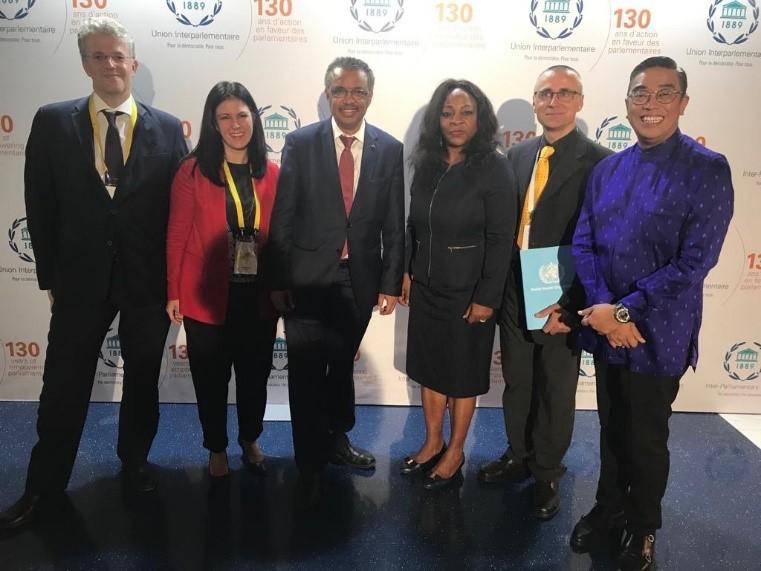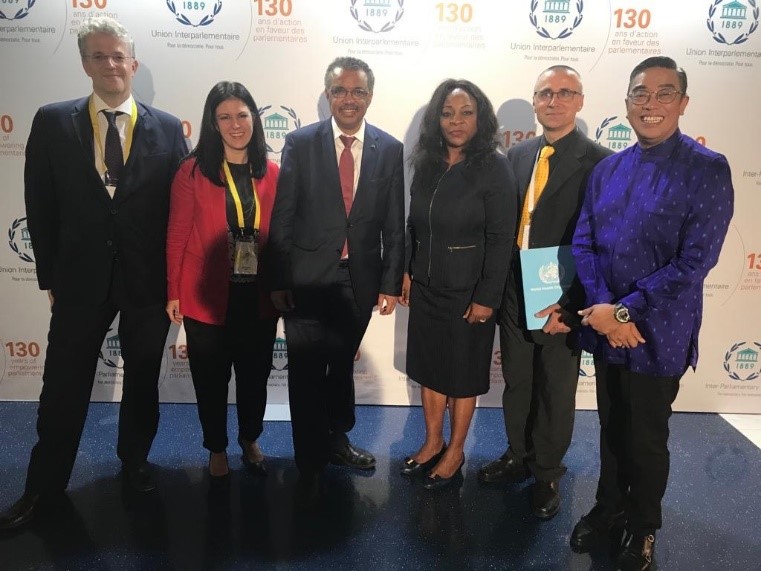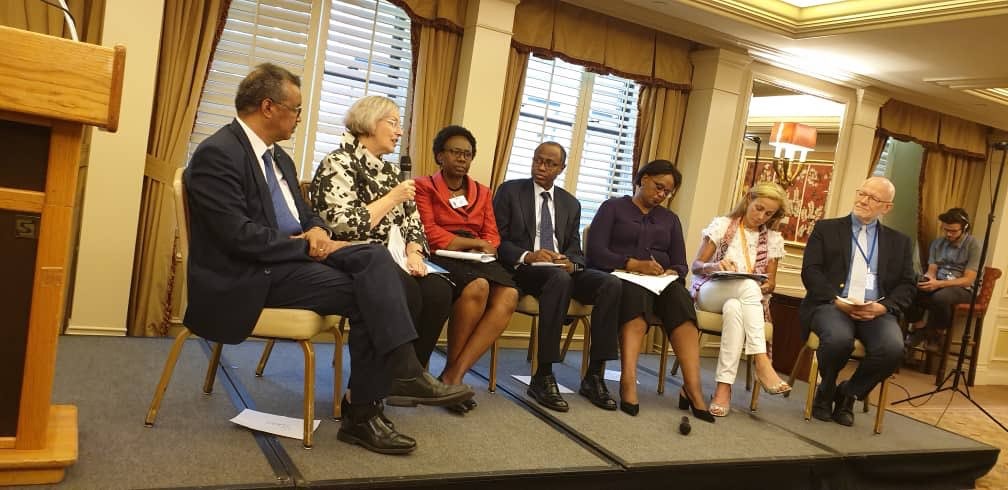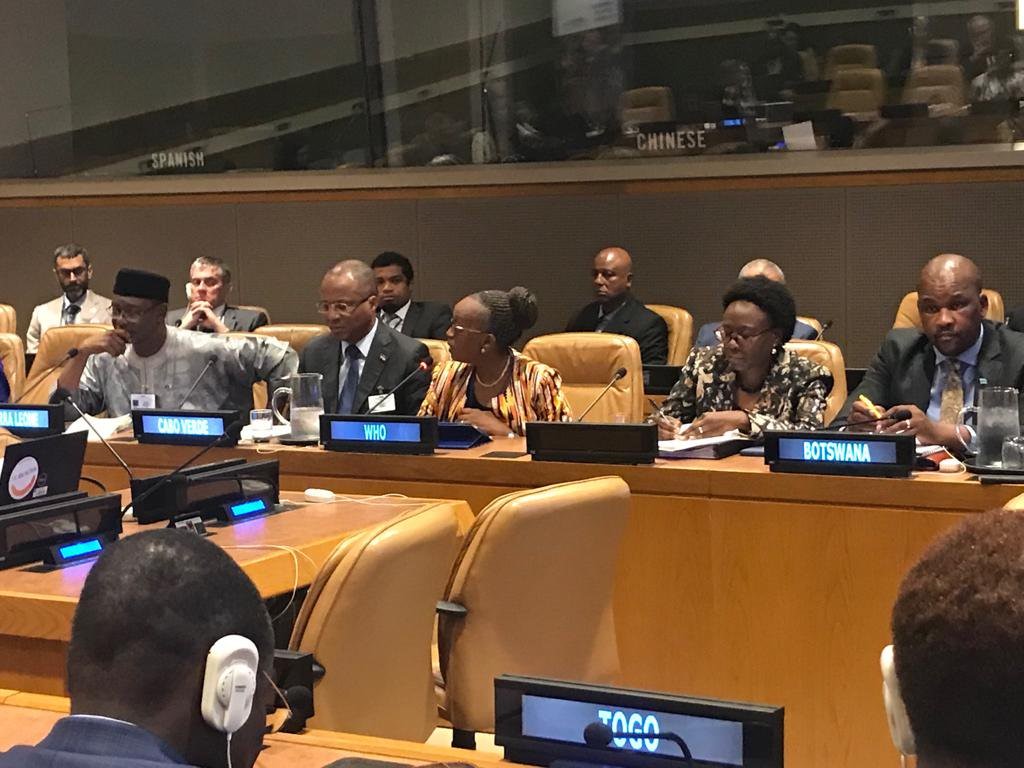
Memorandum of Understanding between Inter-Parliamentary Union and WHO
November 20, 2019
Memorandum of Understanding between Inter-Parliamentary Union and WHO
In October 2018, World Health Organization (WHO) Director-General Dr Tedros publicly announced a Memorandum of Understanding (MoU) between the Inter-Parliamentary Union (IPU) and WHO to mark a high-level commitment between the organisations for strategic priorities of ensuring healthy lives and promoting well-being for all.
Crucially, one of the main targets of the MoU is global health security. In his speech, Dr Tedros highlighted the ways that parliamentarians can work to address the major challenges and inequalities facing populations; in particular the most vulnerable.

This is especially important when considering the challenge of building emergency preparedness in settings where the risks are highest, and where resources are most limited. In low and low-middle income countries, capacities for the International Health Regulations (2005) (IHR) are weakest.
[1]
Countries with greater levels of national income have higher levels of national preparedness. This is likely related to the ability of countries to invest higher levels of domestic funding toward preparedness measures. However managing health emergencies & preparedness is still a critical issue for all countries irrespective of economic development.
Parliamentarian action in all countries represents a unique opportunity to address these issue through greater political support and legislative measures to facilitate IHR capacity building.
This Memorandum of Understanding is an important signal from both the IPU and WHO of continuing joint efforts to help achieve health for all. The two organisations will be broadening cooperation in line with their respective strategic priorities and expanding their partnership to enhance health security.
Momentum for emergency preparedness at UN General Assembly (UNGA) 2019
At this year’s UN General Assembly (UNGA), the Global Preparedness Monitoring Board (GPMB) – which is an independent monitoring and accountability body to ensure preparedness for global health crises – launched its first annual report titled ‘A World at Risk’. The report warns that the world is “at acute risk of devastating regional or global disease epidemics or pandemics that not only cause loss of life but upend economies and create social chaos”.
Speaking at UNGA 2019, Dr Tedros spoke of the urgency needed to build preparedness and accelerate implementation of the IHR. He also mentioned how the threat of pandemic flu is “what keeps me awake at night”.

The GPMB report recalls that the 1918 global influenza pandemic killed as many as 50 million people and left about nearly one third of world population sick. If a similar contagion happened today, as many as 50-80 million people could perish and there could be widespread panic as well as a major impact on the global economy and trade, and on national security.
Seven urgent actions are listed in the report to help the world to rapidly strengthen preparedness against health emergencies, and the GPMB has clearly outlined its central finding that the world needs to proactively establish the systems needed to detect and control potential disease outbreaks.
WHO and its Member States, partners and worldwide global health leaders will be working toward the recommendations from the Board and tracking action at all levels to ensure continued progress. In addition to the annual report, a series of thematic background papers have also been launched including one by WHO on the ‘Status of Country Preparedness Capacities’.
Unveiling an Investment Case for Health Security and Universal Health Coverage
Also at UNGA, the WHO Regional Office for Africa hosted a side-event sponsored by the permanent mission of Botswana to the UN where a new investment case for Health Security and Universal Health Coverage (UHC) was presented. The Minister of Health of Sierra Leone gave a keynote speech on behalf of His Excellency the President of Sierra Leone, and in addition the Ministers of Health of both Rwanda and Uganda also participated. Representatives of the World Bank Group, International Federation of Red Cross and Red Crescent Societies (IFRC) and other multilateral agencies were also present.
The aim of the side-event was to convene countries that are currently facing significant risks of health emergencies in the African region, and to highlight the important need for investing in health systems as a measure of building preparedness.
The investment case for Health Security and UHC was delivered through a presentation by WHO Regional Director for Africa Dr Matshidiso Moeti, and colleagues from the Regional Office.
Preliminary findings of an ongoing study that assesses dividends from an integrated approach to health system strengthening and health security were disseminated at the meeting, and a set of key recommendations were also put forward. These include follow up of existing commitments to dedicate resources for health systems and health security, strengthening high-level political commitment for greater investments and better linking UHC expansion with emergency preparedness capacity building.
Finalization of the investment case is continuing and an official launch is planned as part of the 75th session of the UN General Assembly (UNGA 75) during September 2020.
